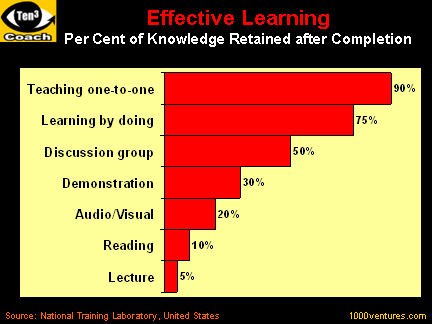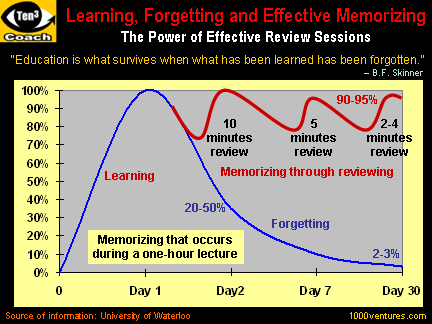| |
|
Memorizing Techniques
|
|
 |
| |
Everybody is unique, and there are hundreds of
different study and memorization techniques. Experiment with them and find the
ones that work for you best. |
|
 |
 |
If you want to improve your memory, lie to
everyone differently so that you have to remember who you said what to. |
Kotfucius |
| |
Brown and Miller list some more memorizing techniques.
Memorizing
through association
It easier to remember something if
we link it to something we already know. Try to relate new information to
personal examples as much as possible.
|
|
|
| |
|
Memorizing through repetition
This is probably the one aspect
of studying that most people
know – and dread. However, even
though most of us know that we
should have lots of repetition,
we don't know how important it
actually is.
|
|
|
| |
Repetition, in the context of memorization, means different
interactions with the new material.
In other words, it is more than a simple rereading of notes. It
could include making flashcards, talking as you draw your mind maps,
and writing summaries. |
|
 |
| |
Memorizing through grouping
One of the key
aspects of memory performance is to learn the material from the
general to the specific. In order to achieve this, graphic
organizers are often a must. Your brain needs
some kind of mental organization in order for you to retrieve
the stored information. |
|
KoRe EduBooks
Emforgaphics
KoRe 10 Metaphorical Thinking Tools
(10KITT)
|
|
| |
Memorizing through mnemonic
techniques
Mnemonics are
very powerful memorization devices that work especially
well for memorizing lists and sequences of items.
The
key to mnemonics is to build a strong association
between the mnemonic and for what they stand.
Mnemonics take a little bit of practice, but become
easier the more you use them. |
|
|
|
|